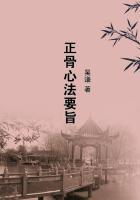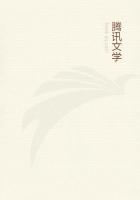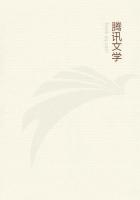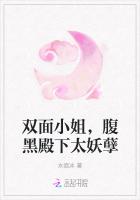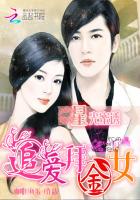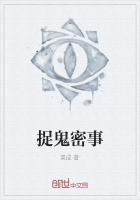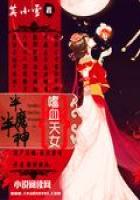If this should happen to be true and it certainly commends itself to acceptance--it might portend an immediate danger to the vested interests of criticism, only that it was written a hundred years ago; and we shall probably have the "sagacity and industry that slights the observation" of nature long enough yet to allow most critics the time to learn some more useful trade than criticism as they pursue it. Nevertheless, I am in hopes that the communistic era in taste foreshadowed by Burke is approaching, and that it will occur within the lives of men now overawed by the foolish old superstition that literature and art are anything but the expression of life, and are to be judged by any other test than that of their fidelity to it. The time is coming, I hope, when each new author, each new artist, will be considered, not in his proportion to any other author or artist, but in his relation to the human nature, known to us all, which it is his privilege, his high duty, to interpret. "The true standard of the artist is in every man's power" already, as Burke says; Michelangelo's "light of the piazza," the glance of the common eye, is and always was the best light on a statue; Goethe's "boys and blackbirds" have in all ages been the real connoisseurs of berries; but hitherto the mass of common men have been afraid to apply their own simplicity, naturalness, and honesty to the appreciation of the beautiful. They have always cast about for the instruction of some one who professed to know better, and who browbeat wholesome common-sense into the self-distrust that ends in sophistication. They have fallen generally to the worst of this bad species, and have been "amused and misled" (how pretty that quaint old use of amuse is!) "by the false lights" of critical vanity and self-righteousness. They have been taught to compare what they see and what they read, not with the things that they have observed and known, but with the things that some other artist or writer has done. Especially if they have themselves the artistic impulse in any direction they are taught to form themselves, not upon life, but upon the masters who became masters only by forming themselves upon life. The seeds of death are planted in them, and they can produce only the still-born, the academic. They are not told to take their work into the public square and see if it seems true to the chance passer, but to test it by the work of the very men who refused and decried any other test of their own work. The young writer who attempts to report the phrase and carriage of every-day life, who tries to tell just how he has heard men talk and seen them look, is made to feel guilty of something low and unworthy by people who would like to have him show how Shakespeare's men talked and looked, or Scott's, or Thackeray's, or Balzac's, or Hawthorne's, or Dickens's; he is instructed to idealize his personages, that is, to take the life-likeness out of them, and put the book-likeness into them. He is approached in the spirit of the pedantry into which learning, much or little, always decays when it withdraws itself and stands apart from experience in an attitude of imagined superiority, and which would say with the same confidence to the scientist: "I see that you are looking at a grasshopper there which you have found in the grass, and I suppose you intend to describe it. Now don't waste your time and sin against culture in that way. I've got a grasshopper here, which has been evolved at considerable pains and expense out of the grasshopper in general; in fact, it's a type. It's made up of wire and card-board, very prettily painted in a conventional tint, and it's perfectly indestructible. It isn't very much like a real grasshopper, but it's a great deal nicer, and it's served to represent the notion of a grasshopper ever since man emerged from barbarism. You may say that it's artificial. Well, it is artificial; but then it's ideal too; and what you want to do is to cultivate the ideal. You'll find the books full of my kind of grasshopper, and scarcely a trace of yours in any of them. The thing that you are proposing to do is commonplace; but if you say that it isn't commonplace, for the very reason that it hasn't been done before, you'll have to admit that it's photographic."
As I said, I hope the time is coming when not only the artist, but the common, average man, who always "has the standard of the arts in his power," will have also the courage to apply it, and will reject the ideal grasshopper wherever he finds it, in science, in literature, in art, because it is not "******, natural, and honest," because it is not like a real grasshopper. But I will own that I think the time is yet far off, and that the people who have been brought up on the ideal grasshopper, the heroic grasshopper, the impassioned grasshopper, the self-devoted, adventureful, good old romantic card-board grasshopper, must die out before the ******, honest, and natural grasshopper can have a fair field.
I am in no haste to compass the end of these good people, whom I find in the mean time very amusing. It is delightful to meet one of them, either in print or out of it--some sweet elderly lady or excellent gentleman whose youth was pastured on the literature of thirty or forty years ago --and to witness the confidence with which they preach their favorite authors as all the law and the prophets. They have commonly read little or nothing since, or, if they have, they have judged it by a standard taken from these authors, and never dreamed of judging it by nature; they are destitute of the documents in the case of the later writers; they suppose that Balzac was the beginning of realism, and that Zola is its wicked end; they are quite ignorant, but they are ready to talk you down, if you differ from them, with an assumption of knowledge sufficient for any occasion. The horror, the resentment, with which they receive any question of their literary saints is genuine; you descend at once very far in the moral and social scale, and anything short of offensive personality is too good for you; it is expressed to you that you are one to be avoided, and put down even a little lower than you have naturally fallen.
These worthy persons are not to blame; it is part of their intellectual mission to represent the petrifaction of taste, and to preserve an image of a smaller and cruder and emptier world than we now live in, a world which was feeling its way towards the ******, the natural, the honest, but was a good deal "amused and misled" by lights now no longer mistakable for heavenly luminaries. They belong to a time, just passing away, when certain authors were considered authorities in certain kinds, when they must be accepted entire and not questioned in any particular.
Now we are beginning to see and to say that no author is an authority except in those moments when he held his ear close to Nature's lips and caught her very accent. These moments are not continuous with any authors in the past, and they are rare with all. Therefore I am not afraid to say now that the greatest classics are sometimes not at all great, and that we can profit by them only when we hold them, like our meanest contemporaries, to a strict accounting, and verify their work by the standard of the arts which we all have in our power, the ******, the natural, and the honest.
Those good people must always have a hero, an idol of some sort, and it is droll to find Balzac, who suffered from their sort such bitter scorn and hate for his realism while he was alive, now become a fetich in his turn, to be shaken in the faces of those who will not blindly worship him. But it is no new thing in the history of literature: whatever is established is sacred with those who do not think. At the beginning of the century, when romance was ****** the same fight against effete classicism which realism is ****** to-day against effete romanticism, the Italian poet Monti declared that "the romantic was the cold grave of the Beautiful," just as the realistic is now supposed to be. The romantic of that day and the real of this are in certain degree the same.
Romanticism then sought, as realism seeks now, to widen the bounds of sympathy, to level every barrier against aesthetic *******, to escape from the paralysis of tradition. It exhausted itself in this impulse; and it remained for realism to assert that fidelity to experience and probability of motive are essential conditions of a great imaginative literature. It is not a new theory, but it has never before universally characterized literary endeavor. When realism becomes false to itself, when it heaps up facts merely, and maps life instead of picturing it, realism will perish too. Every true realist instinctively knows this, and it is perhaps the reason why he is careful of every fact, and feels himself bound to express or to indicate its meaning at the risk of overmoralizing. In life he finds nothing insignificant; all tells for destiny and character; nothing that God has made is contemptible. He cannot look upon human life and declare this thing or that thing unworthy of notice, any more than the scientist can declare a fact of the material world beneath the dignity of his inquiry. He feels in every nerve the equality of things and the unity of men; his soul is exalted, not by vain shows and shadows and ideals, but by realities, in which alone the truth lives. In criticism it is his business to break the images of false gods and misshapen heroes, to take away the poor silly, toys that many grown people would still like to play with. He cannot keep terms with "Jack the Giant-killer" or "Puss-in-Boots," under any name or in any place, even when they reappear as the convict Vautrec, or the Marquis de Montrivaut, or the Sworn Thirteen Noblemen. He must say to himself that Balzac, when he imagined these monsters, was not Balzac, he was Dumas; he was not realistic, he was romanticistic.

